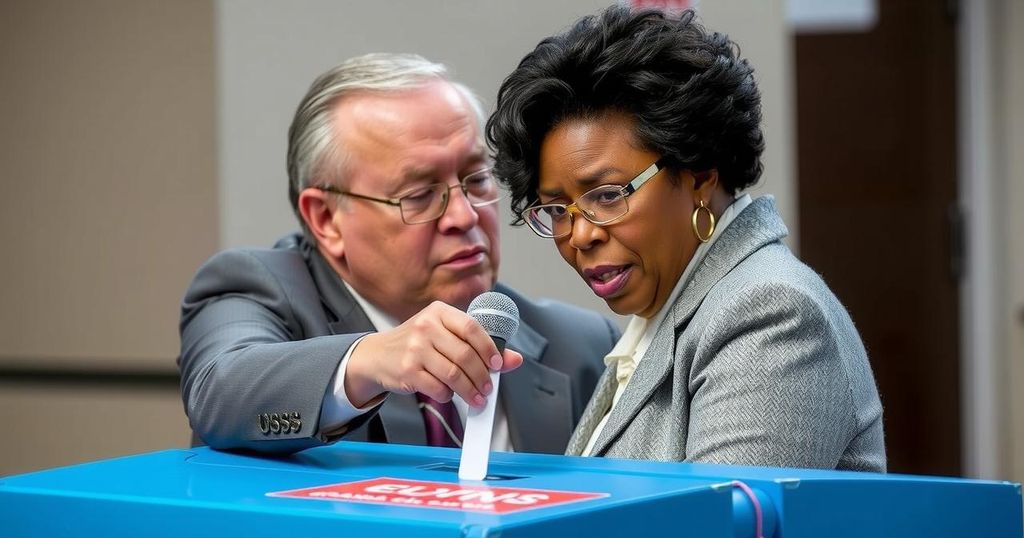Controversial Elections in Georgia Highlight Allegations of Voter Fraud and Violence

Georgians voted on October 26, 2023, in pivotal elections that saw Georgian Dream claim victory amid allegations of voter fraud by opposition and observers. While the Central Election Commission announced GD winning 56% of the votes, there are significant discrepancies with exit polls favoring opposition parties, raising doubts about the legitimacy of the electoral process amid accusations of collusion and violence. Prime Minister Kobakhidze defended the integrity of the elections, while international observers highlighted the severe undermining of democratic principles due to intimidation and irregularities.
On October 26, Georgians participated in significant elections, the first of their kind since 2003. The ruling party, Georgian Dream (GD), declared a resounding victory amid serious allegations of voter fraud raised by opposition parties and election observers. Despite GD’s assertion of a landslide win, exit polls from pro-opposition media indicated that opposition groups garnered a majority of votes. The Central Election Commission (CEC) revealed preliminary results favoring GD with 56% of the vote, which has been met with skepticism due to allegations of collusion with the ruling party and instances of election-related violence.
Various election watchdogs, including a coalition named My Vote, reported that the level of irregularities created doubt about the legitimacy of the CEC’s findings. Opposition members highlighted significant inconsistencies between their data and that of the state, fostering a belief that the election process had been compromised. Prime Minister Irakli Kobakhidze refuted these claims, suggesting that while some irregularities were acknowledged, the overall legality of the elections was maintained; contrastingly, former EU ambassador Eklund noted that voter intimidation undermined the electoral process.
Globally, 2023 has seen a record number of elections, but many have been marred by violence and democratic erosion, with Georgia exemplifying these troubling trends. The right to free elections is fundamental in democratic societies, yet instances of violence directed towards voters undermine this principle, necessitating that those responsible face accountability. The role of election observers and non-governmental organizations is paramount in ensuring electoral integrity, making it crucial that the allegations of fraud in Georgia are thoroughly examined by impartial authorities.
Georgian Dream has held power for 12 years, centering recent campaigns around safety concerns linked to regional conflicts such as the war in Ukraine. Their messaging suggested the opposition would jeopardize national security, resonating with a populace weary from past confrontations with Russia. Furthermore, Georgia’s aspirations for EU membership were obstructed by both anti-Western rhetoric from GD and the passage of a controversial “foreign influence” law that galvanized widespread protest. With GD’s latest electoral success, the nation is poised to strengthen its ties with Moscow, thereby amplifying Russia’s influence in the region.
The political landscape in Georgia is deeply influenced by ongoing tensions with Russia and aspirations for European integration. For over a decade, the ruling party, Georgian Dream, has navigated these challenges while facing increasing scrutiny over its democratic practices. The recent elections marked a pivotal moment, highlighting significant societal divisions over the country’s geopolitical direction and the integrity of its electoral system. The backdrop includes a contentious law perceived as threatening democratic freedoms, leading to mass protests and a reevaluation of the political establishment’s legitimacy.
The recent elections in Georgia underscore significant concerns regarding electoral integrity and democratic processes in the region. Allegations of fraud, violence, and intimidation cast a shadow over the ruling party’s claims of victory, demanding the attention of international observers and independent authorities. As the nation grapples with its historical ties to Russia amidst aspirations for closer European relations, the outcome of this electoral contention could have far-reaching implications for Georgia’s future governance and alignment.
Original Source: theowp.org








